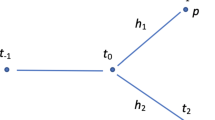Abstract
In the Incoherence of the Philosophers, Abu Hamid al-Ghazali (1058-1111) raised objections against the doctrine of the ‘philosophers’ (represented chiefly by al-Farabi and Ibn Sina) on 20 specific points. In the first, and longest discussion, he examines and rebuts four of their proofs of the pre-eternity of the world—that is, that the universe as a whole had no beginning but extends perpetually into the past. Al-Ghazali rejects that doctrine. But his own position on the issue does not become clear until he discusses the philosophers’ ‘second proof.’ In this paper, I will examine the relevant text of the Incoherence of the Philosophers, in order to clarify the nature of Al-Ghazali’s position in relation to the second proof. I will explain why Al-Ghazali cannot adopt what I refer to as the ‘naïve’ theological position, according to which God temporally preceded the world. Instead, Al-Ghazali concurs with the philosophers that time is the measure of motion, but he asserts that time was created with the world, both having a beginning before which there was no time. God, on the other hand, is not temporally prior to the world, but neither is he simultaneous, as the second proof supposes. As timelessly eternal, God bears no temporal relation to the world at all. In conclusion, I describe what I refer to as a naïve philosophical position, which is entailed by the second proof, but distinct from both Al-Ghazali’s position and that adopted by Ibn Rushd in his critique of Al-Ghazali in the Incoherence of the Incoherence. I argue that this naïve philosophical position (and thus, the second proof) is incoherent.
Similar content being viewed by others
References
Al-Ghazali, A. H. M. (2000). Tahafut al-falasifah (‘Incoherence of the Philosophers’), translated by M. Marmura Provo, Utah: Brigham Young University Press.
Al-Iqtisad fi-al Itiqad (‘Moderation in Belief’), translated by Dennis Morgan Davis, Jr. (2005) Dissertation for the Department of Languages and Literature, University of Utah.
Aquinas, T. (1923). Summa Contra Gentiles, Book II, Chapt. 36, translated by the English Dominican Fathers. New York: Benziger Brothers.
Aristotle. (1995). Physics, VII, I, 251b, translated by Terence Irwin and Gail Fine in Aristotle: Selections. Indianapolis: Hackett Publishing.
Bahlul, R. (1992). Al-Ghazali on creation vs. eternity of the world. Philosophy and Theology, 6 (3).
Black, D. (1993). “Estimation (Wahm) in Avicenna: logical and psychological dimensions,” Dialogue XXXII.
Giffel, F. (2012). “Al-Ghazali’s use of “original disposition” (Fitra) and its background in the teachings of al-Fārābi and Avicenna,” The Muslim World (p 102).
Goodman, L. E. (1971). Al-Ghazali’s argument from creation. International Journal of Middle Eastern Studies 2.
Hourani, G. (1958). “Dialogue between al-Ghazali and the philosophers on the eternity of the world,” The Muslim World, 48, issues 3/4.
Ibn R. (1954). Tahafut al-Tahafut (‘Incoherence of the Incoherence’), translated by Simon Van Den Bergh, Cambridge: CUP.
Leaman, O. (2002). An introduction to classical Islamic philosophy. Cambridge: Cambridge University Press.
Marmura, M. (1959). “The logical role of the argument from time in the Tahafut’s second proof for the world’s pre-eternity,” The Muslim World, 49, issue 4.
Tomeh, G. (1952). “The climax of a philosophical conflict in Islam.” Muslim World (p 42).
Author information
Authors and Affiliations
Corresponding author
Rights and permissions
About this article
Cite this article
Moad, E.O. Al-Ghazali’s Position on the ‘Second Proof’ of the ‘Philosophers’ for the Eternity of the World, in the First Discussion of the Incoherence of the Philosophers. SOPHIA 54, 429–441 (2015). https://doi.org/10.1007/s11841-014-0458-5
Published:
Issue Date:
DOI: https://doi.org/10.1007/s11841-014-0458-5




